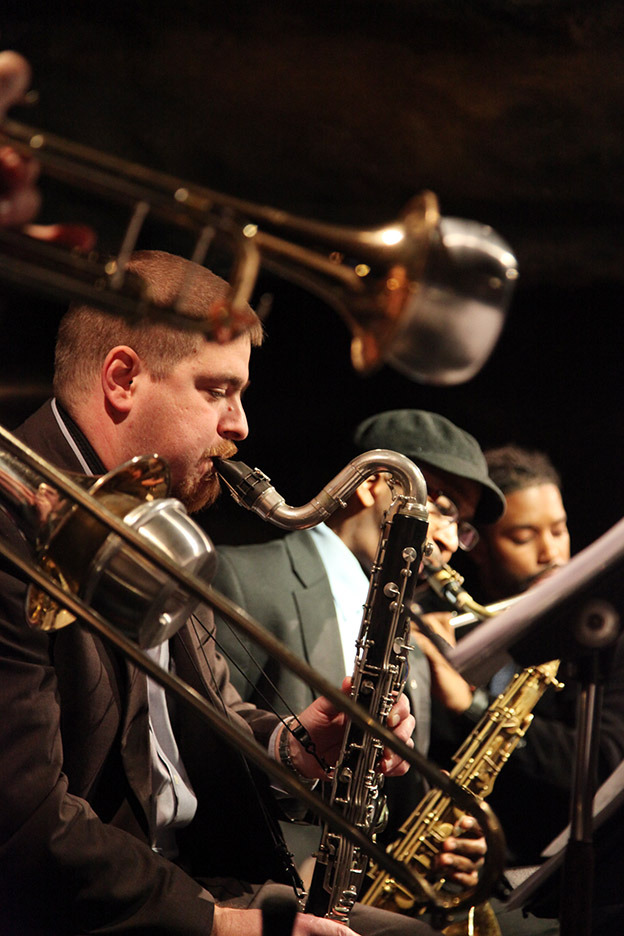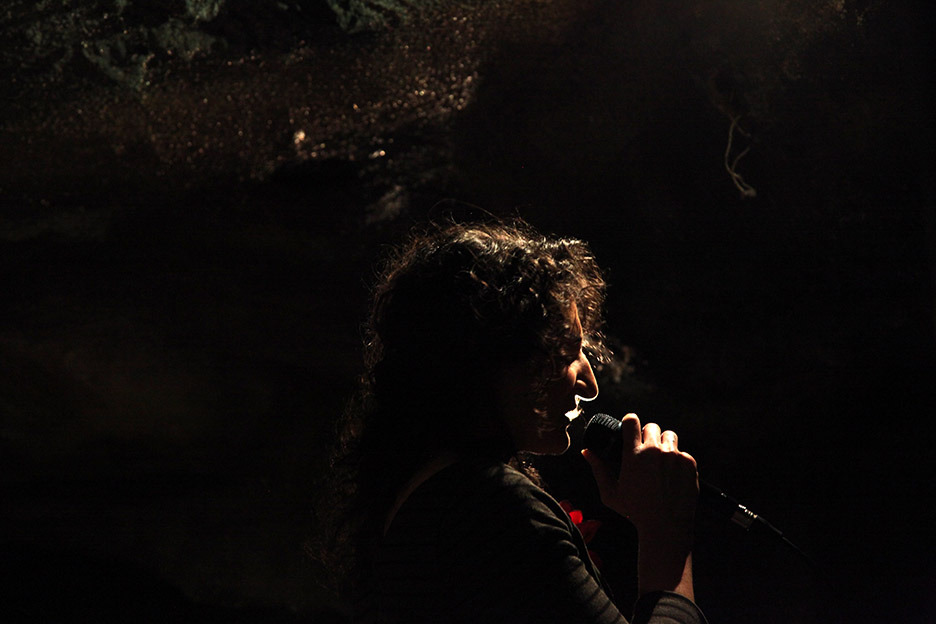Todd Marcus Jazz Orchestra
Bohemian Caverns
Sunday, January 19
You could read the mild Middle Eastern flourishes in the bass clarinetist Todd Marcus’s compositions as a simple siphoning of his Egyptian-American heritage into modern, straight-ahead jazz. Though, that would be far too simple. An even cruder reading sees that dimension of his music as a mere reflection of his uncommon (for American jazz) background. But the title of his most recent release, 2012’s Inheritance, suggests something more: an active stance toward history.
For certain, titles like “Blues for Tahrir” and “Protest” point beyond aesthetics, directly at Egypt’s ongoing revolution. While that sound is clean and thoughtfully arranged, one can hear Marcus working out the messiness that inheritance and protest share: We inherit both personal and collective history, but we must make ourselves.

Todd Marcus. Dawn Whitmore/CapitalBop
On Sunday night at Bohemian Caverns, it was deep into Marcus’s first set with his nine-piece Jazz Orchestra, halfway through “Tears on the Square,” that I first woke up to the nuance in the Baltimorean’s sonic exploration of history. Marcus had just introduced the players in his ensemble, and casually revealed his Egyptian heritage. After an extended, hushed solo from the bassist Jeff Reed, sounds from the orchestra trickled in from different heights and angles, accented by the drummer Eric Kennedy‘s pulsating rolls around the kit that evaded any detectable beat. The reeds and brass drifted in and out of focus as floating planes, always in relation to the tacit lead of the rhythm section. There was a curtain of ominous sound, but with little glints of hope shining through one instrument at a time. “Tears” is not the sound of protest, more of the tragedy that often comes with it. You can imagine Marcus writing it alongside images and stories of the far too many Egyptians killed or injured thus far in the struggle.
Marcus’s songs sound written from the low end up, often organized in alignment with fragments from the rhythm section (Kennedy, Reed and the pianist Xavier Davis): sometimes repeated technical riffs and sometimes open spaces of isolated randomness. The guest singer Irene Jalenti, herself a resident of Baltimore, lent a thick voice in thoughtful doses, never upstaging the orchestra’s collective effort.
When he isn’t playing with his large orchestra, Marcus’ go-to format is a quartet. On Sunday, somehow, there was more space in the band’s sound than there is in that of his smaller group. The nonet reminded me of the absurd paradox that sometimes more instruments allows for more room; it’s as if the group’s combined sound is haunted by what each of the musicians isn’t playing. This is the mark of quality arrangement, but more so of seasoned players who value tone and dynamics.

Irene Jalenti. Dawn Whitmore/CapitalBop
Contemporary jazz, like most art forms in the wake of modernism, bears resemblance to the American presidency: The way we usually talk about them both makes it seem as if very little territory remains to be covered. It’s hard not to see a contemporary player as a reference back to someone else, whether it be John Coltrane, Miles Davis, or whoever — as though the position is waiting to be filled every few years and legacies are instantly mulled over. As a leader who specializes in the unorthodox bass clarinet, Marcus’s glaring lodestar is Eric Dolphy. On Sunday night, Marcus’s playing tore up and down through the instrument’s range with a remarkably even precision and force, though he never quite approached Dolphy’s detached intensity. But if set opener “Runoff,” Marcus’s newest composition, offers any trace of where his writing is headed (that is, toward clever obfuscation of rhythm and tonality), we can expect his arrangements to continue moving beyond what a straight-ahead orientation allows.
Marcus doesn’t permit himself to be caught in the shadow of Dolphy; a close listen uncovers an artist working out contemporary concerns along collective lines, both within and exterior to jazz. His recent stuff offers not resolution but respect for the contradiction inherent in history: That we appreciate those that came before us while, in certain times, having to tear down what they constructed to build anew.![]()







Join the Conversation →